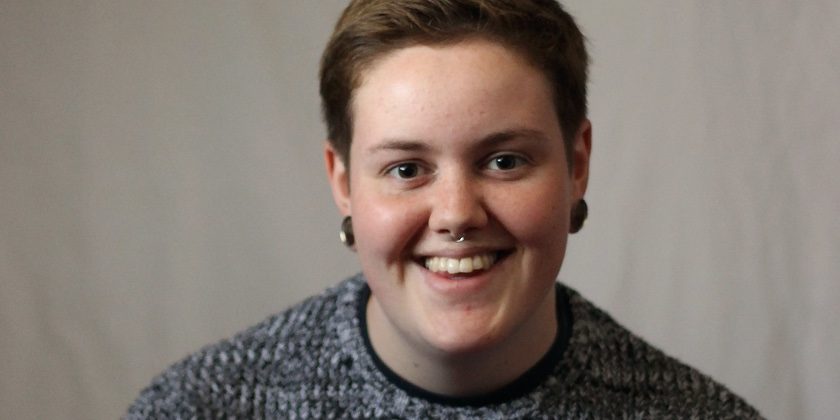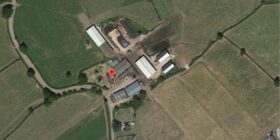Student discouraged from science study in her teens set to graduate with first class degree

A student discouraged from studying science in her teens is set to graduate from university with a first-class degree – and has been shortlisted for a national award.
Paige Tynan, from Llandyrnog in Denbighshire, was told when preparing for her GCSEs that she should not take the higher level papers in her GCSE science exams – and, despite fighting to secure the right to sit them, found her confidence knocked as a result.
However, since beginning her studies at Wrexham Glyndwr University, Paige has discovered a love for Forensic Science – and in particular Forensic Anthropology; has been shortlisted in the inaugural Wales STEM Awards; and has presented her work virtually at a major UK conference – where she was selected for a special award.
Paige is now hoping to use her story – and her love of science – to inspire young people to consider STEM (Science, Technology, Engineering and Maths) subjects and to follow their interests in higher-level study.
She said: “When I was told that I’d fail my science GCSE exams if I sat the higher tier papers, it was a huge knock to my confidence – and I don’t think I really overcame the loss of confidence until I finished this year with a first-class honours degree.
“I did fight to sit the higher tier papers, and I did end up doing better than I would have sitting the foundation papers – but my confidence had already been knocked.”
Despite the discouragement she had received in her teens, and despite not having a science-related A-level, Paige chose to study Forensic Science at Wrexham Glyndwr University – beginning her degree with a Foundation year.
Despite facing challenges in her studies, Paige’s tutors worked to ensure she was receiving the support she needed.
This included a referral to Glyndwr’s Inclusion Services team, which led to a diagnosis of dyslexia – meaning the team could give her tailored support to help her build upon her strengths.
Paige added: “I have been aiming high since I got my extremely late dyslexia diagnosis, halfway through second year. I didn’t want it to define me academically – and I now had the support to get me to where I wanted to be.
“My experience has contributed heavily to my aspirations to become an educator, so that I can give students entering STEM pathways the same sort of support that I received at Glyndwr – so that they, too, can reach their full potential.”
During her studies, Paige discovered a particular love for Forensic Anthropology – and , shortly after completing her degree, she was among dozens of people presenting research at the British Association for Forensic Anthropology’s most recent virtual conference – where delegates picked her research for an award.

“The British Association for Forensic Anthropology is something I have been a member of throughout my undergraduate degree,” she said.
“I am quite keen to become a Certified Forensic Anthropologist over the next couple of years.
“The conference was open to all members of the association – thirty research posters were submitted and around 200 delegates attended. There was some really great research on display.
“I entered a poster based on my dissertation research project, which looked at the effects of body size on the rate of cadaver decomposition in the UK.
“When I found out that I had won the Delegates’ Choice Award I was absolutely made up – especially because I am hoping to continue my studies at Glyndwr through doctoral study. It was great to know that my research was disseminated effectively and that people had enjoyed reading it.”
As well as the award from the Association, Paige has also found herself shortlisted – alongside Amy Rattenbury, the Programme Leader for Forensic Science at Glyndwr – in the upcoming Wales STEM awards.
The awards celebrate those who are championing and making a difference in STEM subjects across the country.
Paige said: said: “I think it’s a good achievement to be shortlisted – and to go from so many to the final three. It’s quite exciting really and a good recognition of my work.”
Amy added “I’m very pleased to be nominated for this award – and to see Paige nominated too.
“I’m always keen to do whatever I can to inspire more female training and development in an area which has been traditionally male-dominated, and everything which helps to promote STEM careers, particularly to women, is hugely important.
“To see Paige shortlisted for the rising star award is a perfect example of how hard work, determination and a supportive environment can really transform the journeys of so many of our students here at Glyndwr.
“I am extremely proud of all our students who have completed their studies this year and many, like Paige, are already going on to do great things with their research.”
More about studying Forensic Science at Wrexham Glyndwr University can be found here.
Spotted something? Got a story? Email [email protected]












